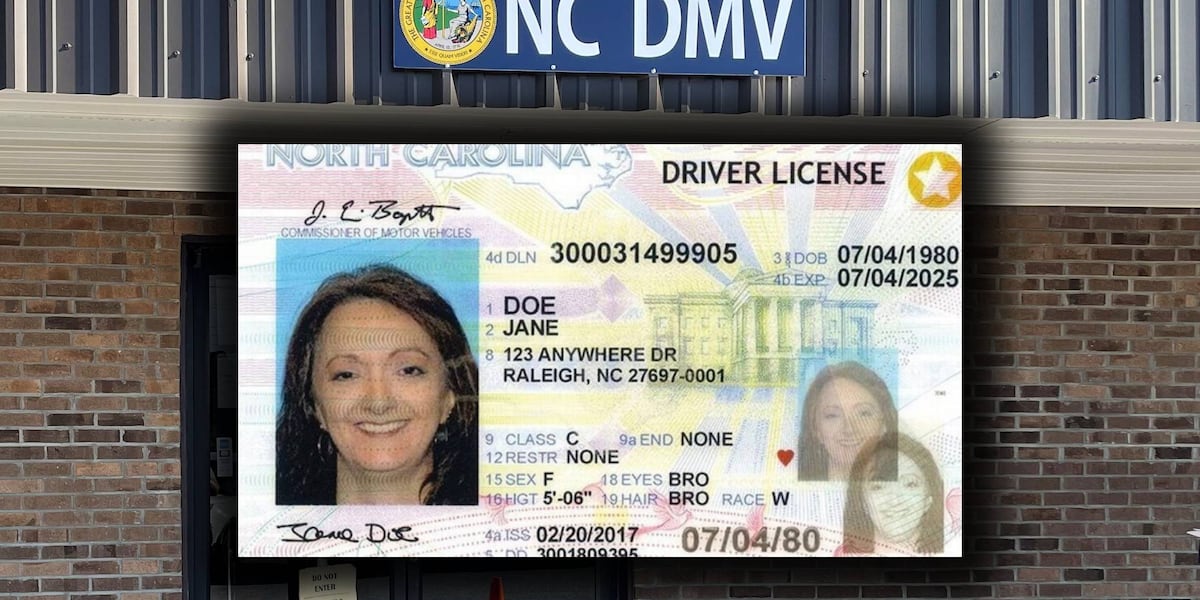North Carolina
Three Key Matchups For FSU Football’s Home Matchup Against North Carolina

The Florida State Seminoles will face off against the North Carolina Tar Heels in Tallahassee, Florida, on Saturday at 3:30 ET on ACC Network. FSU will look to bounce back after its first loss to the rival Miami Hurricanes in four years.
READ MORE: Blue-Chip Wide Receiver Decommits From Florida State Following 1-7 Start
North Carolina comes into this game with a 4-4 record. Their offense, led by quarterback Jacolby Criswell and running back Omarion Hampton, failed to score 30 points only twice through eight games. Their defense has had its ups and downs, though. The Tar Heels only gave up 14 to a scrappy Virginia team on the road last week (who put up 31 at Clemson two weeks ago) but gave 70 at home to James Madison in late September.
North Carolina head coach Mack Brown began his illustrious coaching career as a student wide receiver coach for Florida State. He won a national championship with the Texas Longhorns in 2005 and is currently serving his second stint as the Tar Heels head coach. From 1988 to 1997 and from 2019 until the present, Brown has never defeated his alma mater. With this game in Tallahassee as well, the 4-4 Tar Heels could end Brown’s 0-8 record against the Garnet and Gold.
Many fans will be glued to their screens or making the trip to the Sunshine State’s capitol this weekend to see their Seminoles in action, but if you’re looking for the pivotal matchups – the game within the game on Saturday – NoleGameday has you covered.
Against Miami last week, the ’Noles gave up 230 yards on the ground on 40 attempts, good for 5.8 yards per rush. Hampton, who has already eclipsed 1,000 yards rushing on the season, averages 5.6 yards a pop. Florida State picked its poison against the Hurricanes and held Heisman frontrunner QB Cam Ward to 208 yards through the air, the first time he’s failed to reach 300 yards on the season. This strategy kept the game within two scores more than halfway through the fourth quarter, but the ’Canes dominated the time of possession and limited the Seminoles to eight possessions the entire contest.
North Carolina, however, has maintained a top-40 passing attack despite Texas A&M transfer QB Max Johnson being out for the season with a broken leg. Jacolby Criswell has come in and averaged a 57th-best 7.65 yards per attempt. Cam Ward is 6th-best at 9.77 yards per attempt.
While Criswell’s passing ability should not be overlooked, the Florida State defense will be able to have more freedom in their game plan against the Tar Heels. FSU has a top-40 pass defense and fared well in man coverage through the air last week. With a threat like UNC’s Hampton on the ground, the Seminoles could get away with attributing more bodies to the run.
Nonetheless, they will still need to execute.
Of the eight opponents that Florida State has played this season, UNC has the second-worst rushing defense (65th), only better than Duke (88th).
When facing the Blue Devils, the Seminoles recorded 162 yards on the ground and had a chance to tie the game at the end despite losing the turnover battle by four (including three turnovers on three straight offensive plays).
If Florida State can tie or even possibly win the turnover margin on Saturday, the ’Noles could find themselves back in the win column for the second time this season.
Redshirt freshman FSU QB Brock Glenn is atop of the depth chart for the fifth straight week, but true freshman QB Luke Kromenhoek has received significant playing time in the last two games.
There’s a saying that if you have two quarterbacks, you have none. However, what can’t be denied is that the Tar Heels will have to prepare for two quarterbacks during their preparation this week. Both have similar skill sets, but Kromenhoek could be more prone to running the ball due to play calls with limited reads.
How UNC looks if Kromenhoek enters the game (and it’s likely he does) is certainly a key matchup for Saturday’s contest.
READ MORE: Luke Kromenhoek’s Legs Spark Florida State’s First Touchdown Drive Against Miami
Stick with NoleGameday for more FREE coverage of Florida State Football throughout the 2024 Season
Follow NoleGameday on and Twitter, Facebook, Instagram, and TikTok
• 19 Notes Regarding Florida State’s Sizable Loss To Rival Miami
• Full Comments From Mike Norvell Following Florida State’s Defeat To Miami
• FSU Fans, Former Players React to First Loss to Miami In Four Years
• Florida State Falls to Miami For First Time In Four Years

North Carolina
Ranked Choice Voting would be good for North Carolina • NC Newsline

Why Ranked Choice Voting (RCV)?
Let’s talk about Ranked Choice Voting (RCV). It’s a voting system that’s making elections fairer for millions of Americans—nearly 20 million, in fact! But what’s so great about it? Here are a few key benefits:
- Winners need majority support: With RCV, winners have to get over 50% of the vote. That means they can’t just squeak by with a small slice of support.
- Better campaigning: Candidates can’t just play to their base—they have to appeal to more people. This means fewer nasty attack ads and more focus on real issues.
- No more “spoiler” candidates: Ever felt like voting for your favorite candidate might “waste” your vote or hurt your second choice? RCV fixes that. You rank your choices, and if your top pick doesn’t win, that candidate is eliminated, and your vote can still count for your next choice. This enables broader discussion from a wider range of candidates.
- Saves money and increases turnout: RCV skips the need for costly runoffs, which often have low voter participation.
In North Carolina, this kind of change could make a big difference. Right now, primary winners can take office with just 33% of the vote, and Raleigh City Council races can be won with only 20%. That’s not a true majority. RCV ensures fairer outcomes without the downsides of traditional runoffs.
Success stories in 2024
RCV made some exciting progress this year! Here’s where it won big:
- Washington, D.C.: Voters said yes to RCV with a whopping 73% support. Starting in 2026, it’ll be used for federal and local elections.
- Alaska: Voters kept RCV by a hair—a 743-vote margin! Having been used for four years now, t’s already proving itself as a fair and non-partisan system.
- Oak Park and Peoria, Illinois: Both places adopted RCV for local elections, giving voters more power and better results.
- Richmond, California: Voters embraced RCV for local races, adding to the growing trend of cities making the switch.
Lessons from setbacks
Not everything went smoothly for RCV in 2024. Some states tried to combine RCV with other major changes, like open primaries or “top-four” systems, and those proposals didn’t pass.
Why? Well, bundling RCV with other reforms may have made things feel too complicated for voters and prompted strong partisan efforts against primary reforms. The good news? When RCV is presented on its own, it tends to win strong support. That’s a big takeaway for the future.
Why RCV matters in elections
RCV could completely transform elections. Take our home state of North Carolina, for example. Right now, candidates can win with as little as 33% of the vote. That leaves a lot of voters feeling left out. Here’s how RCV changes the game:
- Majority support: Candidates have to get more than 50% of the vote to win.
- No costly runoffs: RCV figures it all out in one election, saving money and avoiding low-turnout runoffs.
- No wasted votes: You can rank your choices, so even if your favorite doesn’t win, your vote still counts.
- Better engagement: When voters know their voices matter, they’re more likely to show up.
In general elections, RCV also ensures that winners truly represent the majority. Candidates are motivated to reach beyond their base and run more positive, inclusive campaigns. That’s better for everyone.
The future of RCV
The successes in 2024—from D.C. to Alaska—show that voters are ready for a better way to elect their leaders. RCV makes elections fairer, ensures majority support, and helps reduce political division.
The setbacks also taught us something important: RCV works best when it’s not bundled with other reforms. Keeping the focus on RCV’s benefits helps voters see why it’s worth adopting.
Looking ahead, the goal is simple: give every voter a stronger voice and make sure every vote counts. Whether it’s for primaries or general elections, RCV is a step toward making democracy work better.
With more communities embracing this change, we can look forward to a future where elections are fairer, more inclusive, and truly reflect the will of the people. Let’s keep the momentum going.
To learn more about Ranked Choice Voting, visit Rank the Vote and Better Ballot NC.
North Carolina
Mobile driver’s licenses coming to North Carolina in 2025

RALEIGH, N.C. (WBTV) – Mobile driver’s licenses will be coming to North Carolina in 2025 after former Gov. Roy Cooper signed a bill into law this past summer.
The law, which Cooper signed on July 2, 2024, will make the mobile licenses available on July 1, 2025. According to the law, the digital licenses will be the “legal equivalent” of traditional, hard-card licenses.
The mobile licenses will be issued along with the physical copy, but based on the law, the mobile version seems as though it will have to be requested in order to receive it. Steps on how to request one have not yet been made public.
Once the new licenses become available, they will have the same information listed as traditional ones.
When Cooper signed the law this past summer, it ordered the DMV and North Carolina Department of Transportation to begin a study and plan for implementing the digital cards. Among the items to be studied and planned were renewal processes, costs, and security and confidentiality of information.
The DMV and Department of Transportation were required to report back to the state legislature by Jan. 1, 2025. Support for the bill was nearly unanimous in both chambers of the General Assembly.
According to identity verification company IDScan.net, at least 15 American states have active mobile driver’s license programs. Dozens more are either considering legalizing them or developing apps.
Previous Coverage: NC lawmakers, DMV commissioner considering digital driver’s license
Watch continuous news coverage here:
Copyright 2025 WBTV. All rights reserved.
North Carolina
Documents show New Orleans suspect filed for divorce in NC
Voting records, business records and social media posts show the driver suspected of a deadly terrorist attack on New Year’s Day in New Orleans once lived in North Carolina.
Web Editor : Jelia Hepner
Posted
-
/cdn.vox-cdn.com/uploads/chorus_asset/file/25672934/Metaphor_Key_Art_Horizontal.png)
/cdn.vox-cdn.com/uploads/chorus_asset/file/25672934/Metaphor_Key_Art_Horizontal.png) Technology1 week ago
Technology1 week agoThere’s a reason Metaphor: ReFantanzio’s battle music sounds as cool as it does
-

 Business1 week ago
Business1 week agoOn a quest for global domination, Chinese EV makers are upending Thailand's auto industry
-

 Health5 days ago
Health5 days agoNew Year life lessons from country star: 'Never forget where you came from'
-
/cdn.vox-cdn.com/uploads/chorus_asset/file/24982514/Quest_3_dock.jpg)
/cdn.vox-cdn.com/uploads/chorus_asset/file/24982514/Quest_3_dock.jpg) Technology5 days ago
Technology5 days agoMeta’s ‘software update issue’ has been breaking Quest headsets for weeks
-

 World1 week ago
World1 week agoPassenger plane crashes in Kazakhstan: Emergencies ministry
-

 Politics1 week ago
Politics1 week agoIt's official: Biden signs new law, designates bald eagle as 'national bird'
-

 Business2 days ago
Business2 days agoThese are the top 7 issues facing the struggling restaurant industry in 2025
-

 Politics7 days ago
Politics7 days ago'Politics is bad for business.' Why Disney's Bob Iger is trying to avoid hot buttons




/cdn.vox-cdn.com/uploads/chorus_asset/file/25814563/videoframe_30347.png)










